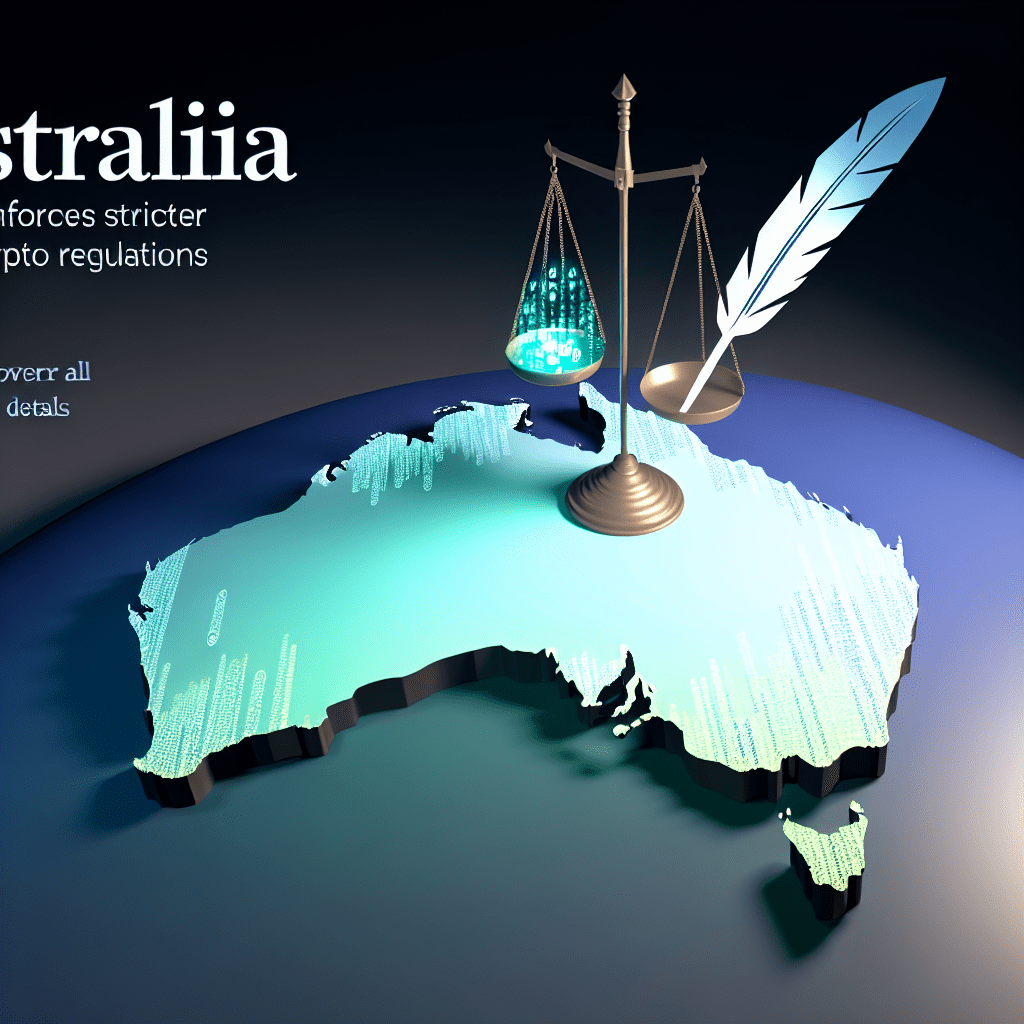
- Cryptocurrency companies providing financial products need to secure an AFSL by June 30.
- Bitcoin and NFTs are reportedly exempt from the financial product category.
- The Treasury has completed discussions on new cryptocurrency legislation.
Australia has strengthened its regulatory landscape for digital assets, launching new guidelines that clarify the classification and licensing of crypto service providers.
The Australian Securities and Investments Commission (ASIC) announced updates to Information Sheet 225.
Service providers associated with financial products must apply for an Australian Financial Services License (AFSL) and register with the Australian Financial Complaints Authority by June 30.
The revised document aims to simplify compliance, enhance investor protection, and standardize regulations for digital asset providers to align with traditional financial institutions.
This represents a marked change in Australia’s strategy for regulating crypto businesses while ensuring improved market transparency.
The initiative seeks to enhance oversight of the fast-paced crypto sector while allowing for flexibility regarding tokens like Bitcoin, which won’t be classified as financial products under the updated guidelines.
Bitcoin excluded, but stablecoins under scrutiny
According to the updated guidelines, ASIC clarified that cryptocurrencies like Bitcoin, gaming non-fungible tokens (NFTs), and tokenized event tickets don’t fall under the financial product classification.
Conversely, stablecoins, wrapped tokens, tokenized securities, and yield-generating products such as staking services and tokenized real estate will necessitate licensing.
ASIC also confirmed tentative regulatory relief for stablecoin and wrapped token distributors to facilitate compliance ahead of upcoming legislative changes.
The framework specifies that services offering financial returns or lock-in periods will be deemed financial products, ensuring protections under existing finance laws for investors in yield-centric assets.
Industry welcomes clarity but warns of implementation challenges
The update has generally been well-received within the blockchain community for delivering much-needed clarity.
Industry representatives and legal experts opined that this move sheds light on ASIC’s regulatory approach to the digital asset ecosystem.
However, concerns were raised about potential logistical challenges during the transition, given the scarcity of local expertise, banking limitations, and accessibility to insurance.
The CEO of Blockchain APAC remarked that ASIC’s proactive policy implementation ahead of final legislation offers short-term certainty while allowing for various interpretations.
These “structural constraints,” including resource limitations and compliance issues, may shift risks from legal to operational aspects if not swiftly addressed.
Transition underway as crypto firms prepare for licensing
Industry participants are currently reorganizing their operations to comply with the new regulations.
The Digital Economy Council of Australia hailed the update as a significant advancement toward mainstream regulation but expressed worry about ASIC’s ability to manage a high volume of licensing applications in a timely manner.
This follows the Albanese government’s March proposal for a consolidated framework that integrates crypto exchanges within the existing financial services laws.
The Treasury recently concluded consultations on draft legislation to formalize this transition, aligning Australia’s crypto regulations with international standards.
This update signifies a pivotal moment for Australia’s digital asset market, laying down a compliance roadmap while indicating the government’s commitment to balancing innovation with investor safeguards.

